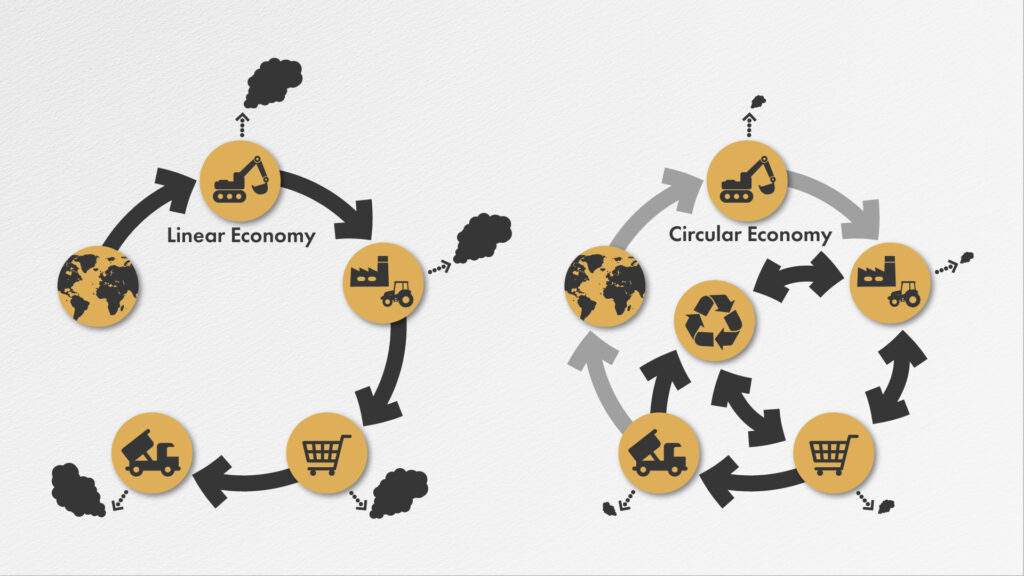Everyone is talking about shifting to more sustainable models of production and consumption, but what does it actually mean? This question is complex and encompasses several aspects of people’s lives but there may be an answer to solve it all: a shift towards a circular economy. The Ellen MacArthur Foundation defines circular economy as “one that is restorative and regenerative by design and aims to keep products, components, and materials at their highest utility and value at all times, distinguishing between technical and biological cycles.”
To shed light on this issue and help unpack this concept, UN CC:Learn has recently launched the Circular Economy for the Waste Sector in South Africa. The three-module course takes an average of two hours to be completed. The course has been developed in collaboration with United Nations Environment Programme (UNEP), with support from the South African Department of Forestry, Fisheries, and the Environment (DFFE), under the framework of the EU-funded Switch Africa Green Programme. Among other things, you will learn to:
- Explain what a circular economy is, its main principles, objectives, and benefits
- Identify key issues and economic opportunities in the South African waste sector
- Describe applications of circularity in the waste sector
- Describe the current waste management policy framework
- Identify concrete approaches that can support the circularity transition in South Africa

The course is filled with real-life examples of how circular economy principles can be applied to different businesses. For instance, learners will find out about companies helping push circularity across different industries, like Blueland, a company providing zero-waste, sustainable cleaning tablets, and Buy Me Once, which offers lifetime guarantees to consumers, giving them the opportunity to fix their products instead of having to change them.
The course considers the challenges and opportunities for applying best practices in circularity to the waste sector in South Africa. Even in the challenging country and regional context , circular economy nonetheless provides a pathway for delivering economic growth and job creation while improving people’s health and protecting the environment.

